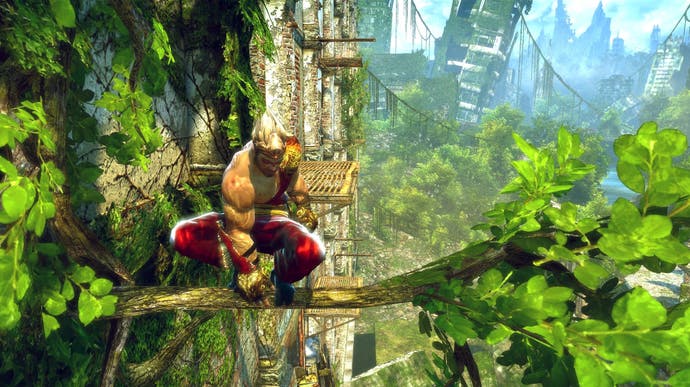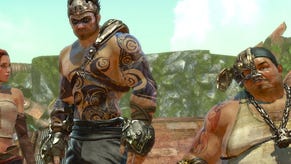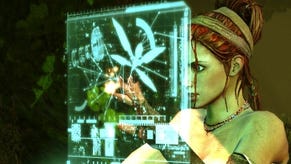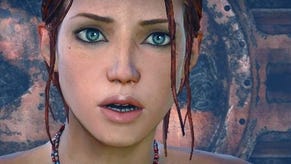Pocket City, urban deer and the rewilding of video games
Wild life.
There's a moment in an oldish film - I think it's Mad Dog and Glory but I wouldn't bet on it - where a guy is taking a photo of a New York street in the dead of night and a deer turns up. I can't remember the guy's reaction - I think it's De Niro but I wouldn't bet on it - and I can't remember how it fits into the plot. Yet I remember, even as it happened, realising that it was too much, too good, too brilliant and clear and luxurious a moment for the rest of the film to ever recover from. It was a birthday cake dropped in the footwell of a car. A city street at night and here's this deer, this ghost of the wild. There's an unforced surrealism to it, the same surrealism I felt a few years back bussing through Hove at midday on a Sunday - it is always Sunday in Hove - when I spotted a fox standing insouciantly outside a mobile phone shop as if pondering a trip to Nero's.
Urban deers must be deployed carefully, I think. They carry such a weight of obvious meaning and emotion that they can become trite. And yet even at their tritest they have such a wonderful effect, such an ability to lift the mood and break the narrative and distract. I've been playing The Division 2 off and on, mainly off, over the last few weeks. The Division 2 is set in a ruined Washington DC where mankind's grip has weakened and nature is making a tentative comeback. Fireweed and saplings sprouting through the sidewalk, moss growing on the bleached faces of the great and good and forgotten. Often at the beginning of a mission you'll be crouched low and racing towards an enemy camp and there it will be, the urban deer, rising to its tottering legs and bouncing off. Headed to the next mission, presumably, where it will do the same thing again and I will stop, again, the magic weaving its spell for the nth time and against all odds.
I have seen this deer in a number of games over the last few years. Anywhere that cities have fallen and norms have crumbled. In Crysis 3, walking through a flooded valley, beautiful water glittering in Manhattan canyons, I looked up from my bow and there was the deer, startled, moving away. I wonder if I saw it in Enslaved, darting around a tree that had grown up through the middle of a skyscraper. Maybe not. Maybe I just imagined it. Maybe De Niro just imagined it.
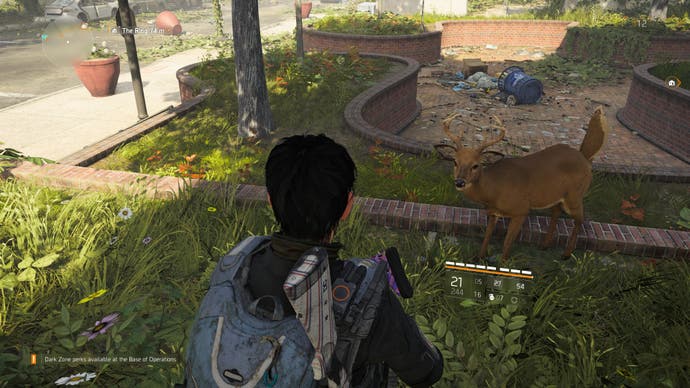
In between The Division 2 I've been playing something completely different: Pocket City, a lovely city-building game for smartphones. God, it is a delight. Played on the standard setting it's not too punishing, and it's also been cleverly streamlined so you can just get on with the fun of these things, which generally involves doodling with streets. I lay down residential, commercial, industrial zones. I connect them with roads, which plumbs them in and wires them to the grid, and then I spark up a power station and life takes over. The zones go from coloured tiles to building sites and then tower blocks, ranch houses, tidy little factories. As I level up I chuck in cinemas, rail networks, a drone factory that sends tiny packages whirring through the air. Even the odd catastrophe - a tornado, an earthquake - turns out to be no big deal. There's a single button to rebuild and I net a bunch of XP and some emergency money along the way.
And if I zoom in, there's that deer again. At least I think it's a deer. But something's changed. The deer's no longer on the march. Instead, it's being pushed back, squeezed out as I buy new territory and tame the wilderness, zoning it, slicing it up, making it earn. There is an overtly ecological bent to the end-game, perhaps, as I whack in solar power and spike my old nuclear plants, but by and large nature is a thing that is covered up, resourcified, tamed in zoos or carefully preserved in single tiles to fuel a timber yard.
None of this is a criticism. I am an urban person, and the value of a game like Pocket City, cheery and knockabout as it is, is that it reminds me that all this urban stuff is built on top of other stuff. One of the last things I unlocked in Pocket City is a ski park. You plonk it directly onto a mountain and it smooths the crags into luxury slopes for luxury patrons. It is the most undermining thing to do to a mountain other than, I would guess, actually mining under it. You can do that too, incidentally. It unlocks a bit earlier.
It has all made me think - although think might be pushing it - of how strange this is. We accept the rewilding of cities in shooters when it is mere backdrop. We love it, I think, the artful, picturesque frisson of a tastefully rendered apocalypse. And yet I cannot recall playing a city-building game or anything that sees cities as tools as well as sound stages, in which you meaningfully take things the other way, in which you start with Starbucks and build your way to the urban deer.
I would play this game. Asking around the office, I may be able to play some aspect of it already. Doesn't one of the more eccentric 4Xs - maybe Endless Legends - make a move to deprioritise cities? Does From Dust count, a game in which you are God and God is a Roomba? Mushroom 11 is about rewilding - you are fungus snaking through the cracks and gaps of a fallen world. And of course Itch must be crawling with these neat little inversions.
Maybe it is not entirely needed. It is hard to play even the cheeriest city builder these days without pondering this stuff at one point or another, just as it was always hard to play Triple Town without thinking of the trees that give way to houses and churches. One of the things I love about Pocket City is that it troubles me without making a big deal of it. Without thinking, I built my ski park next to my space shuttle launch site, and now whenever I blast off for XP and profit, I set fire to all those skiers, as well as a water tower I placed foolishly too. Meanwhile, a square of road I prodded to life without even realising it fills up with two cars, a bike, and a couple of pedestrians who walk in urban circles forever.
